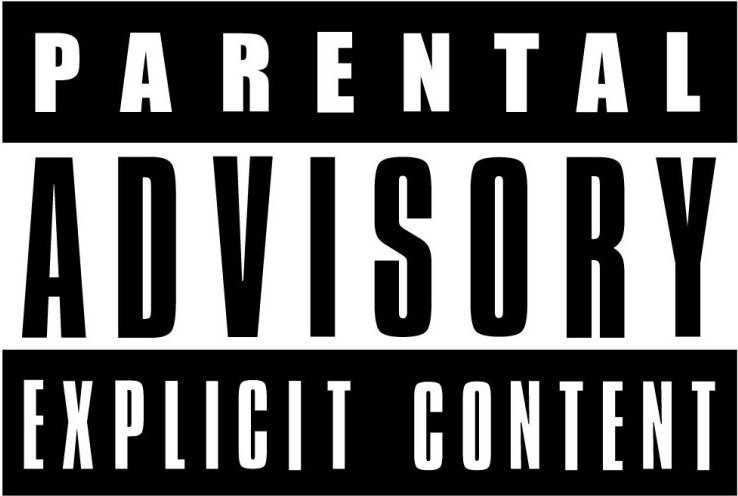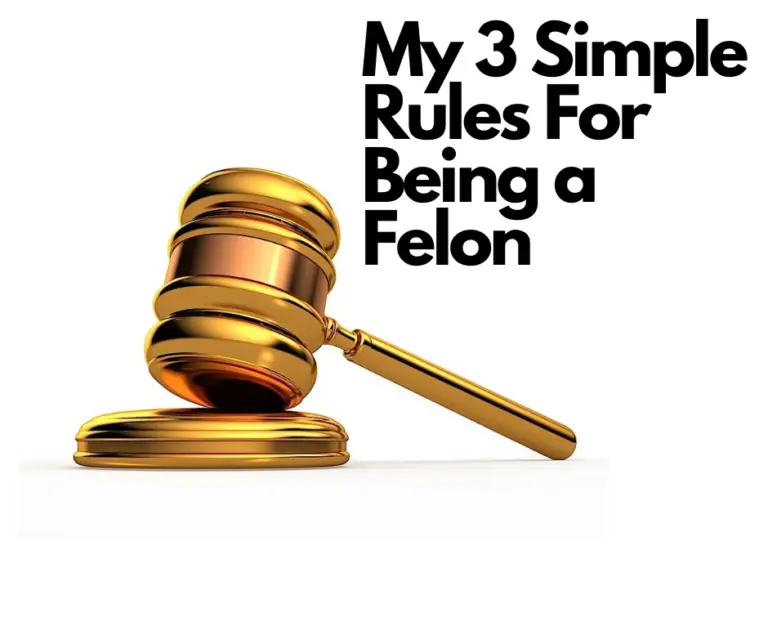Does a Felony Ever Go Away? (A Roadmap to Moving On With Your Life)
If you’re reading this, chances are you or someone you know is grappling with the weight of a felony conviction. I get it – it can feel like a dark cloud that never seems to lift. But here’s the thing: while felony convictions are serious business, it doesn’t have to define your entire future. Allow me to shed some light on what you can do to move forward.
The Big Question: Can Felony Convictions Disappear?
Alright, let’s address the elephant in the room. Does a felony ever truly go away? Well, the short answer is: it depends. (I know, not the clear-cut response you were hoping for, but stay with me!)
In most cases, a felony conviction will stay on your record indefinitely. However, there are some paths that might help you minimize its impact:
- 🧹 Expungement: Wiping the Slate Clean(ish)
- 🔒 Record Sealing: Out of Sight, Out of Mind
- 🏆 Certificates of Rehabilitation: Proving You’ve Changed
- 🎖️ Pardons: The Ultimate Second Chance
Let’s break these all down, shall we?
Expungement: Your Felony’s Disappearing Act
Expungement (felony expunged) is like a magic eraser for your criminal record. If granted, it can:
- Remove the felony crime from public records
- Allow you to legally say you haven’t been convicted of a felony (in most situations)
But here’s the catch: not all felonies (certain felony convictions) are eligible for expungement, and the rules vary by state. It’s like each state is playing its own game of “Felony Monopoly” with different rules!
Record Sealing: Locking Away Your Past
If expungement isn’t an option, record sealing might be your next best bet. When your record is sealed:
- The felony record isn’t erased, but it’s hidden from public view
- Only certain government agencies can access it
Think of it like putting your felony in a time capsule and burying it deep underground!
Certificates of Rehabilitation: Your Gold Star
Some states offer certificates of rehabilitation. These nifty documents:
- Show you’ve turned your life around since the criminal conviction
- Can help with employment and housing opportunities
It’s like getting a gold star from the legal system saying, “Hey, this person’s doing great!”
Pardons: The Ultimate Get Out of Jail Free Card
A pardon is the holy grail of felony relief. If you’re pardoned:
- Your civil rights are restored
- The conviction remains on your record, but with a big “PARDONED” stamp
It’s rare, but it happens. Think of it as winning the legal lottery!
The Felony Challenge: A Mountain to Climb
Now, I won’t sugarcoat it – having a felony stay on your record is like trying to run a marathon with a backpack full of rocks. You might will face:
- 🚫 Employment hurdles
- 🏠 Housing discrimination
- 🗳️ Voting restrictions
- 🔫 Firearm ownership bans
But here’s the good news: many people have climbed this mountain before you, and you can too!
The Roadmap to Overcoming the Felony Challenge (and Moving On With Your Life)
Navigating life with a felony conviction can feel like trying to solve a complex puzzle. But don’t worry – I’ve got you! Let’s break down each step of this roadmap in detail, giving you the tools you need to move forward!
1. Know Your Rights: Become a Legal Eagle 🦅
Understanding your rights is like having a superpower in your corner. Here’s how to flex those legal muscles:
- Research State-Specific Laws: Each state has its own rules about felony convictions. Dive into your state’s laws like it’s your favorite Netflix series.
- Check out the National Conference of State Legislatures website for a state-by-state breakdown.
- Look into “Ban the Box” laws in your area, which prohibit employers from asking about your criminal record on initial job applications.
- Understand Federal Protections: Familiarize yourself with laws like the Fair Credit Reporting Act (FCRA) and Equal Employment Opportunity Commission (EEOC) guidelines.
- The FCRA limits how far back employers can check your criminal history in some cases.
- EEOC guidelines prohibit blanket bans on hiring people with criminal records.
- Stay Updated: Laws change, so set up Google Alerts for terms like “[Your State] felony rights” to stay in the loop.
2. Seek Legal Help: Find Your Legal Sherpa 🧗♂️
A good criminal defense attorney can be your guide through the legal wilderness. Here’s how to find and work with legal help:
- Look for Specialized Attorneys: Seek out lawyers who specialize in post-conviction relief or civil rights.
- Check with your state’s bar association for referrals.
- Look into non-profit organizations like Legal Aid that offer free or low-cost legal services.
- Explore Expungement Clinics: Many law schools and non-profits offer expungement clinics to help clear eligible convictions.
- Prepare for Consultations: Before meeting with a lawyer, gather all documentation related to your conviction and any efforts you’ve made towards rehabilitation.
3. Be Honest: Transparency is Your Secret Weapon 🔍
Honesty isn’t just the best policy – it’s your key to rebuilding trust. Here’s how to approach transparency:
- Craft Your Narrative: Develop a clear, concise explanation of your prior felony conviction and how you’ve grown since then.
- Practice this explanation with friends or in front of a mirror until it feels natural.
- Timing is Everything: In job applications, wait until you’re asked about your criminal history before disclosing.
- If there’s no criminal background check or question about criminal history, you’re generally not obligated to volunteer this information.
- Show Growth: When discussing your prior conviction, always pivot to how you’ve changed and what you’ve learned.
- “Yes, I made a mistake in my past. Since then, I’ve [completed education/training/therapy/community service], which has taught me [valuable lesson].”
4. Highlight Your Growth: Become the Phoenix Rising from the Ashes 🔥
Your criminal past doesn’t define you – your growth does. Here’s how to showcase your transformation:
- Pursue Education and Training: Enroll in courses or vocational training programs.
- Many community colleges offer programs specifically designed for individuals with criminal records.
- Volunteer: Give back to your community to demonstrate your commitment to positive change.
- Look for opportunities related to your career interests to build relevant experience.
- Develop New Skills: Learn in-demand skills like coding or digital marketing through online platforms like Coursera or edX.
- Gather Recommendations: Collect letters of recommendation from mentors, teachers, or community leaders who can vouch for your character (If you need some help on this – I have a great article right here that will help you wth this).
5. Network: Build Your Support Squad 🤝
Connections can be your bridge to new opportunities. Here’s how to expand your network:
- Join Support Groups: Look for organizations like National HIRE Network or Safer Foundation that support individuals with criminal records.
- Attend Job Fairs: Many cities host job fairs specifically for people with criminal records.
- Leverage Social Media: Use LinkedIn to connect with professionals in your field of interest.
- Join LinkedIn groups related to your industry and engage in discussions.
- Explore Mentorship Programs: Organizations like SCORE offer mentorship opportunities that can help you navigate your career path.
6. Stay Positive: Cultivate a Growth Mindset 🌱
Your attitude can be your biggest asset or your worst enemy. Here’s how to keep your spirits high:
- Practice Self-Care: Prioritize your mental and physical health.
- Consider counseling or therapy to work through any lingering issues related to your conviction.
- Set Achievable Goals: Break your larger goals into smaller, manageable steps.
- Celebrate each small victory along the way.
- Surround Yourself with Positivity: Connect with people who believe in second chances and support your growth.
- Develop a Mantra: Create a positive affirmation to remind yourself of your worth and potential.
- “My past does not define my future. I am capable of growth and success.”
Remember, overcoming the challenges of felony charges is a marathon, not a sprint. Take it one step at a time, celebrate your progress, and never lose sight of your goals. You’ve got the roadmap – now it’s time to start your journey!
Q&A: Your Burning Questions Answered
Q: How long does a felony stay on your record? A: Without expungement or sealing, a felony typically stays on your record forever.
Q: Can I vote with a felony conviction? A: It depends on your state. Some restore voting rights immediately, others require a waiting period or petitions.
Q: Will my felony show up on background checks? A: Usually, yes. But some states limit how far back employers can run criminal background checks.
Q: Can I travel internationally with a felony? A: It’s possible, but challenging. Many countries restrict entry for those with felony offenses.
The Silver Lining: You’re Not Alone
Here are some eye-opening stats that might surprise you:
- 🔢 Nearly 1 in 3 American adults has a criminal record
- 📊 About 8% of the U.S. population has a felony conviction
- 💼 27 states have “Ban the Box” laws, removing criminal history questions from job applications
- 🏆 Studies show that after 7-10 years of no new convictions, a person with a record is no more likely to commit a crime than someone without one
Conclusion: Your Story Aint Over
So, does a felony ever go away? While it might not ever vanish completely, there are ways to minimize its impact and move forward.
Remember, your past doesn’t define (nor dictate) your future. With perseverance and tenacity, the right resources, and a positive attitude, you can write an amazing next chapter in your life story.
Keep your chin up, stay informed about your options, and never stop working towards your goals. You CAN build an extraordinary life with a felony on your record, please know this!







